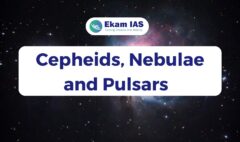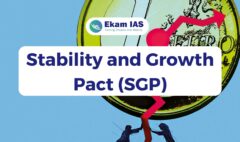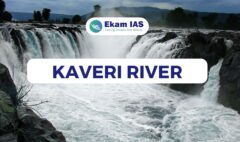Prevention of Money Laundering Act, 2002
December 20, 2022 2022-12-20 18:41Prevention of Money Laundering Act, 2002
- The Supreme Court upheld the constitutional validity of the Prevention of Money Laundering Act, 2002.
- Money Laundering refers to the conversion or misrepresentation of money which has been illegally obtained by unlawful sources and methods.
- It is a criminal offence in India and charges in this instance refer to statutory provisions of the Prevention of Money Laundering Act, 2002.
What is the PMLA
- The Act was enacted in 2002 , as response to India’s global commitment (including the Vienna Convention) to combat the menace of money laundering.
- The PMLA is applicable to all persons which include individuals, companies, firms, partnership firms, associations of persons or incorporations and any agency, office or branch owned or controlled by any of the above-mentioned persons.
- There are various international conventions and instruments dealing primarily with money laundering related to crimes involving drugs and narcotics, such as;
- The United Nations Convention Against Illicit Traffic in Narcotic Drugs and Psychotropic Substances, 1988;
- The Basle Statement of Principles, 1989;
- The Forty Recommendations of the Financial Action Task Force on Money Laundering, 1990;
- The Political Declaration and Global Program of Action adopted by the United Nations General Assembly in 1990;
- The Resolution passed at the UN Special Session on countering World Drug Problem Together, etc.
Objectives of PMLA :
- Three main objectives:
- To prevent and control money laundering
- To confiscate and seize the property obtained from the laundered money; and
- To deal with any other issue connected with money laundering in India.
Enforcement Directorate:
- The Directorate of Enforcement (ED) is a law enforcement agency and economic intelligence agency responsible for enforcing economic laws and fighting economic crime in India.
- It is part of the Department of Revenue, Ministry of Finance.
- The prime objective of the Enforcement Directorate is the enforcement of two key Acts of the Government of India namely, the Foreign Exchange Management Act 1999 (FEMA) and the Prevention of Money Laundering Act 2002 (PMLA).
- Under PMLA, ED has been given the responsibility to enforce the provisions of the Act by conducting investigation to trace the assets derived from proceeds of crime, to provisionally attach the property and to ensure prosecution of the offenders and confiscation of the property by the Special court.
Enforcement Case Information Report (ECIR):
- The ECIR is an internal document of the ED.
Supreme court rulings:
- Enforcement Case Information Report (ECIR) cannot be equated with an FIR.
- Supplying an ECIR in every case to the person concerned is not mandatory and “it is enough if the Enforcement Directorate (ED), at the time of arrest, discloses the grounds of such arrest”.
- The ED has the power of a civil court to enforce the attendance of a person summoned under Section 50. This was challenged on the ground that the section is unconstitutional as it forces people to be witnesses against themselves, something prohibited by Article 20 of the Constitution.
- ED officers were not police officers, and the proceedings related to summons, being only an inquiry related to proceeds of crime, do not amount to an investigation. Therefore, it was open to the ED to gather material without treating the person as an accused, but nevertheless prosecute him later, if the information gleaned disclosed a money-laundering offence.
MODEL QUESTION:
Q. With reference to the Prevention of Money Laundering Act (PMLA) 2002, consider the following statements :
- Under the PMLA, Money Laundering is a criminal offence in India.
- The Enforcement Directorate is empowered to conduct investigation under the Act.
Which of the statement given above is/are correct?
(a) 1 only
(b) 2 only
(c) Both 1 and 2
(d) Neither 1 nor 2
Answer : C
To UPSC-standard MCQs, join our Telegram Channel.
To get years of subjectwise-segregated newspaper articles, join our subjectwise Telegram Channels.
Join our 140k+ YouTube community to watch free classes on various UPSC related topics.
Follow us on Instagram for UPSC updates.
Click here to read more UPSC Current Affairs.
Ekam IAS is the oldest online IAS institute in Kerala. We’ve years of experience in mentoring and teaching students all over the nation, helping them achieve their UPSC-dream through the right guidance, strategy, and precise content. Join Ekam IAS and turn your UPSC-dream into reality.
To learn customizable preparation strategies, book an appointment with our UPSC-expert. Book Now.







